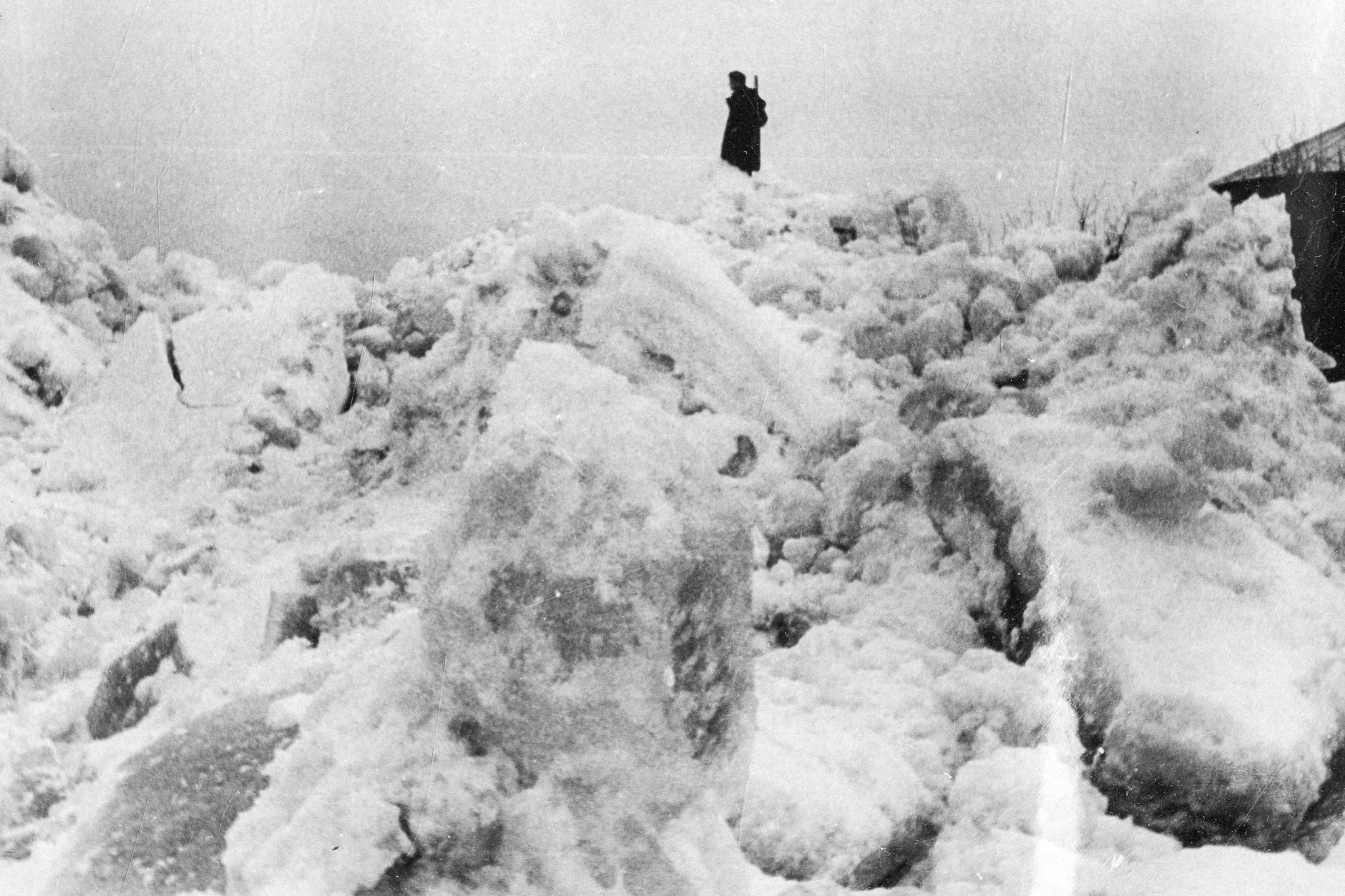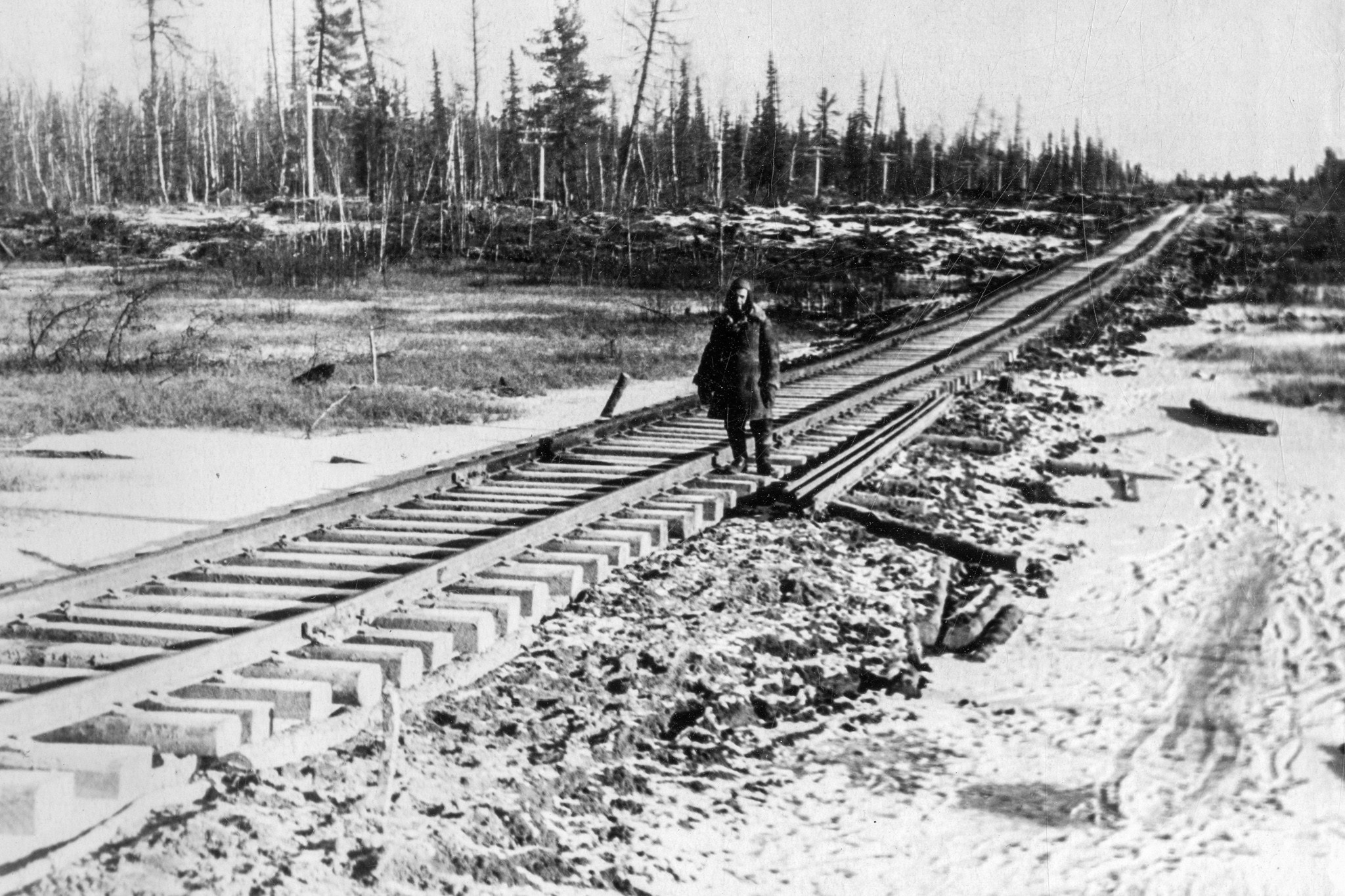Road to nowhere
As a child, I had a particular affection for railroads. I dreamed that when I grow up, I will become a train operator. My family lived in a small town in the far north of Western Siberia. There were no trains in our area, and I really wanted the railway to appear one day. Once, one of the adults told me about the abandoned rail tracks and wooden barracks, found in the forest outside the city limits. I learned the history of their origin much later.
From 1947 to 1953, one of Stalin’s large-scale Construction Projects took place in the post-war USSR. Prisoners of the Gulag and civilians were building the railway track of Chum-Salekhard-Igarka in difficult northern conditions. The road from river Ob to Yenisei was supposed to stretch along the latitude of the Arctic Circle for 1,480 kilometres and connect the mainland with the construction site of a new seaport. In the sixth year of construction, when almost half of the track was already functioning, Stalin died. Soon after the death of its main ideologist, the track itself fell asleep forever. The project was recognized as inexpedient and mothballed. According to historians, based on archival research, the number of prisoners involved in the construction of the railway could reach one hundred thousand people. The exact numbers just as their names are still unknown.
In the project, I combine archival photographs, found objects and materials taken by me during the expedition. I think about unfulfilled dreams and unresolved traumas of the Soviet past. Power in the USSR rested on the myth of a bright future, the road to which was extended through the fate of many people and turned into a disaster. More than half a century later, the repressive policy of the state and terror against its own citizens have not received a proper legal assessment. The dark lessons of history have not been fully assimilated by society, and their ghosts are increasingly manifesting themselves in the present.














